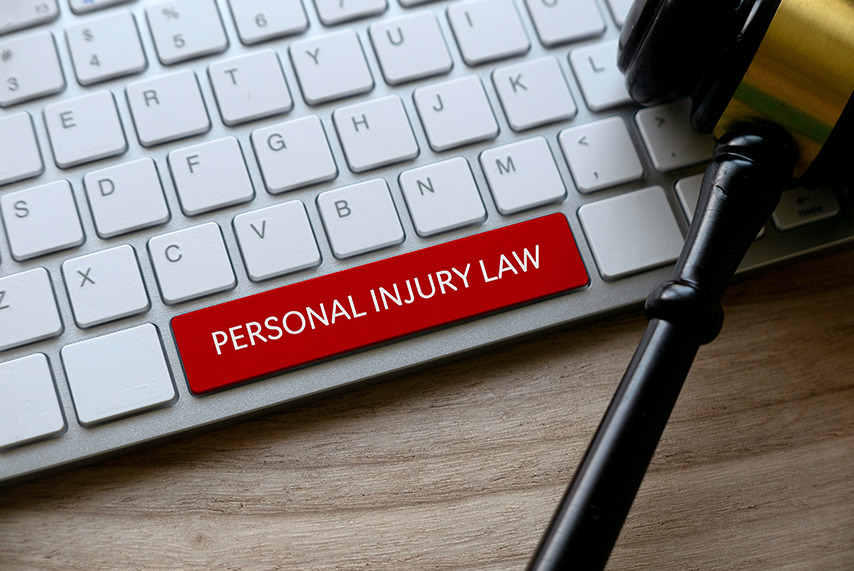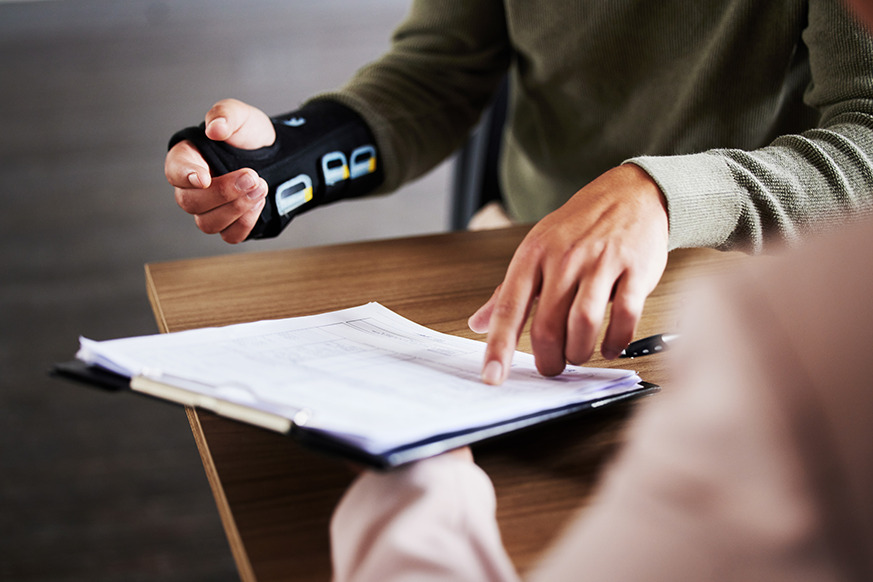
As someone who has always been fascinated by the legal field, I have often wondered about the crucial roles played by legal assistants in the realm of personal injury law. Personal injury legal assistants are the unsung heroes behind the scenes, providing invaluable support to attorneys and helping clients navigate the complexities of the legal system. In this article, we will delve into the world of personal injury legal assistants, exploring their roles, qualifications, and the unique challenges they face. So, if you have ever considered a career in law or are just curious about the inner workings of the legal industry, join me as we shed light on the fascinating world of personal injury legal assistants.
The Role of a Personal Injury Legal Assistant
A personal injury legal assistant is a vital member of a law firm’s team, responsible for providing comprehensive support to attorneys specializing in personal injury law. From the initial client intake to the resolution of a case, these professionals play a crucial role in ensuring the smooth functioning of the legal process. One of the primary responsibilities of a personal injury legal assistant is case management. This involves gathering and organizing relevant documents, such as medical records, police reports, and witness statements. By meticulously managing the case files, legal assistants enable attorneys to focus on strategizing and advocating for their clients.
In addition to case management, personal injury legal assistants also assist with client support. They act as the main point of contact for clients, providing updates on the progress of their cases and addressing any concerns they may have. This requires excellent communication skills and empathy, as personal injury cases can be emotionally charged and clients may be going through a difficult time. Legal assistants must be able to provide reassurance and support while maintaining professionalism and confidentiality.
Qualifications and Skills Required to Become a Personal Injury Legal Assistant
Becoming a personal injury legal assistant requires a combination of formal education, practical skills, and personal qualities. While there is no specific degree or certification required to enter this field, most employers prefer candidates with a background in paralegal studies or a related field. These programs provide a solid foundation in legal principles, research, and writing skills. Additionally, some employers may require certification from a recognized paralegal association, such as the National Association of Legal Assistants (NALA) or the National Federation of Paralegal Associations (NFPA).
In addition to formal education, personal injury legal assistants must possess a range of skills to excel in their roles. Attention to detail is paramount, as legal documents and case files often contain critical information that can significantly impact the outcome of a case. Strong organizational skills are also essential, as legal assistants are responsible for managing multiple cases simultaneously. Additionally, excellent communication and interpersonal skills are crucial for effective client support. Legal assistants must be able to communicate clearly and compassionately with clients, attorneys, and other staff members.
The Hiring and Staffing Process for Personal Injury Legal Assistants
Hiring personal injury legal assistants is a meticulous process that law firms undertake to ensure they find the most suitable candidates for the role. The process typically begins with the creation of a job description outlining the qualifications, skills, and responsibilities required. This job description is then advertised through various channels, such as online job boards, professional networks, and legal publications.
Once applications are received, law firms may conduct initial screenings to shortlist candidates who meet the basic requirements. These screenings often involve reviewing resumes and cover letters to assess the candidates’ education, experience, and suitability for the position. Shortlisted candidates are then invited for interviews, which may include both behavioral and technical questions to evaluate their skills and fit with the firm’s culture.
After the interviews, law firms may conduct reference checks to validate the information provided by the candidates and gain insights into their past performance and work ethic. Once a suitable candidate is selected, an offer is extended, and the onboarding process begins. This process typically includes orientation, training, and familiarization with the firm’s policies and procedures.
A Day in the Life of a Personal Injury Legal Assistant
To truly understand the role of a personal injury legal assistant, it is essential to take a glimpse into their daily routines. A typical day for a legal assistant begins with organizing and prioritizing tasks for the day. This may involve reviewing case files, updating client records, and preparing documents for court proceedings or meetings. Throughout the day, personal injury legal assistants may communicate with clients to provide case updates, answer queries, or schedule appointments.
In addition to client communication, legal assistants also collaborate with attorneys and other staff members on various tasks. This may include conducting legal research, drafting correspondence and legal documents, and assisting attorneys in preparing for trials or negotiations. As the day progresses, legal assistants may attend meetings or conferences with attorneys and clients, where they play a vital role in taking notes and ensuring accurate documentation.
Behind the Scenes: Insights into the Legal Industry and the Role of Legal Support Staff
Working as a personal injury legal assistant offers a unique perspective into the inner workings of the legal industry. Legal assistants often have a front-row seat to the legal process, witnessing the challenges and triumphs of their clients’ cases. Through their work, they gain insights into the intricacies of personal injury law, courtroom procedures, and the strategies employed by attorneys.
Legal support staff, including personal injury legal assistants, are the backbone of law firms. They provide the essential support and assistance that allows attorneys to focus on their core responsibilities. From managing case files to conducting research, legal assistants ensure that attorneys have the necessary resources and information at their fingertips.
Advantages and Challenges of Working as a Personal Injury Legal Assistant
Like any profession, working as a personal injury legal assistant comes with its share of advantages and challenges. One of the significant advantages is the opportunity to make a meaningful impact on clients’ lives. Personal injury cases often involve individuals who have suffered physical or emotional harm, and legal assistants have the chance to support these clients through their legal journey.
Another advantage of working as a personal injury legal assistant is the potential for career growth. As legal assistants gain experience and develop their skills, they may have the opportunity to take on more significant responsibilities, such as managing complex cases or supervising junior staff members. Additionally, legal assistants can pursue professional development opportunities, such as continuing education programs or certifications, to enhance their knowledge and advance their careers.
However, the role of a personal injury legal assistant also comes with its challenges. The workload can be demanding, with tight deadlines and multiple competing priorities. Legal assistants must be able to manage their time effectively and stay organized to ensure they meet the needs of their clients and attorneys. Additionally, personal injury cases can be emotionally taxing, as they often involve individuals who have experienced significant trauma. Legal assistants must be able to provide support while maintaining professional boundaries.
Professional Development Opportunities for Personal Injury Legal Assistants
To thrive in their careers, personal injury legal assistants must embrace ongoing learning and professional development. This field offers numerous opportunities for growth and advancement. Continuing education programs, offered by legal associations and universities, allow legal assistants to deepen their knowledge of personal injury law and develop specialized skills.
Additionally, certifications such as the Certified Legal Assistant (CLA) or the Advanced Certified Paralegal (ACP) can enhance career prospects and demonstrate a commitment to professional excellence. These certifications require passing a comprehensive examination that assesses the candidate’s knowledge and competence in various areas of legal practice.
Legal assistants can also seek out mentorship opportunities to learn from experienced professionals in the field. Mentors can provide guidance, share insights, and help legal assistants navigate their careers. Additionally, joining professional associations and attending industry conferences and seminars can provide valuable networking opportunities and exposure to the latest trends and developments in personal injury law.
Conclusion: Is a Career as a Personal Injury Legal Assistant Right for You?
Becoming a personal injury legal assistant can be a rewarding and fulfilling career choice for those who are passionate about the legal field and helping others. It offers the opportunity to make a real difference in the lives of clients while gaining valuable insights into the legal industry. However, it is essential to weigh the advantages and challenges of the profession and consider your own skills, interests, and career aspirations.
If you are detail-oriented, organized, and possess strong communication skills, a career as a personal injury legal assistant may be a perfect fit for you. Take the time to research educational programs, gain practical experience, and explore professional development opportunities to unlock your potential in this dynamic and essential role.
Unlock your potential with the #1 Houston staffing agency. Find your dream job or top talent now!











